Editor’s note: The following is extracted from On Nothing & Kindred Subjects, by Hilaire Belloc (published 1908).
The ship had sailed northward in an even manner and under a sky that was full of stars, when the dawn broke and the full day quickly broadened over the Mediterranean. With the advent of the light the salt of the sea seemed stronger, and there certainly arose a new freshness in the following air; but as yet no land appeared. Until at last, seated as I was alone in the fore part of the vessel, I clearly saw a small unchanging shape far off before me, peaked upon the horizon and grey like a cloud. This I watched, wondering what its name might be, who lived upon it, or what its fame was; for it was certainly land.
I watched in this manner for some hours—perhaps for two—when the island, now grown higher, was so near that I could see trees upon it; but they were set sparsely, as trees are on a dry land, and most of them seemed to be thorn trees.
It was at this moment that a man who had been singing to himself in a low tone aft came up to me and told me that this island was called the Island of Goats and that there were no men upon it to his knowledge, that it was a lonely place and worth little. But by this time there had risen beyond the Island of Goats another and much larger land.
It lay all along the north in a mountainous belt of blue, and any man coming to it for the first time or unacquainted with maps would have said to himself: “I have found a considerable place.” And, indeed, the name of the island indicates this, for it is called Majorca, “The Larger Land.” Towards this, past the Island of Goats, and past the Strait, we continued to sail with a light breeze for hours, until at last we could see on this shore also sparse trees; but most of them were olive trees, and they were relieved with the green of cultivation up the high mountain sides and with the white houses of men.
The deck was now crowded with people, most of whom were coming back to their own country after an exile in Africa among un-Christian and dangerous things. The little children who had not yet known Europe, having been born beyond the sea, were full of wonder; but their parents, who knew the shortness of human life and its trouble, were happy because they had come back at last and saw before them the known jetties and the familiar hills of home. As I was surrounded by so much happiness, I myself felt as though I had come to the end of a long journey and was reaching my own place, though I was, in reality, bound for Barcelona, and after that up northward through the Cerdagne, and after that to Perigord, and after that to the Channel, and so to Sussex, where all journeys end.
The harbour had about it that Mediterranean-go-as-you-please which everywhere in the Mediterranean distinguishes harbours. It was as though the men of that sea had said: “It never blows for long: let us build ourselves a rough refuge and to-morrow sail away.” We neared this harbour, but we flew no flag and made no signal. Beneath us the water was so clear that all one need have done to have brought the vessel in if one had not known the channel would have been to lean over the side and to keep the boy at the helm off the very evident shallows and the crusted rocks by gestures of one’s hands, for the fairway was like a trench, deep and blue. So we slid into Palma haven, and as we rounded the pier the light wind took us first abeam and then forward; then we let go and she swung up and was still. They lowered the sails.
The people who were returning were so full of activity and joy that it was like a hive of bees; but I no longer felt this as I had felt their earlier and more subdued emotion, for the place was no longer distant or mysterious as it had been when first its sons and daughters had come up on deck to welcome it and had given me part of their delight. It was now an evident and noisy town; hot, violent, and strong. The houses had about them a certain splendour, the citizens upon the quays a satisfied and prosperous look. Its streets, where they ran down towards the sea, were charmingly clean and cared for, and the architecture of its wealthier mansions seemed to me at once unusual and beautiful, for I had not yet seen Spain. Each house, so far as I could make out from the water, was entered by a fine sculptured porch which gave into a cool courtyard with arcades under it, and most of the larger houses had escutcheons carved in stone upon their walls.
But what most pleased me and also seemed most strange was to see against the East a vast cathedral quite Northern in outline, except for a severity and discipline of which the North is incapable save when it has steeped itself in the terseness of the classics.
This monument was far larger than anything in the town. It stood out separate from the town and dominated it upon its seaward side, somewhat as might an isolated hill, a shore fortress of rock. It was almost bare of ornament; its stones were very carefully worked and closely fitted, and little waves broke ceaselessly along the base of its rampart. Landwards, a mass of low houses which seemed to touch the body of the building did but emphasise its height. When I had landed I made at once for this cathedral, and with every step it grew greater.
We who are of the North are accustomed to the enormous; we have unearthly sunsets and the clouds magnify our hills. The Southern men see nothing but misproportion in what is enormous. They love to have things in order, and violence in art is odious to them. This high and dreadful roof had not been raised under the influences of the island; it had surely been designed just after the re-conquest from the Mohammedans, when a turbulent army, not only of Gascons and Catalans, but of Normans also and of Frisians, and of Rhenish men, had poured across the water and had stormed the sea-walls. On this account the cathedral had about it in its sky-line and in its immensity, and in the Gothic point of its windows, a Northern air. But in its austerity and in its magnificence it was Spaniard.
As I passed the little porch of entry in the side wall I saw a man. He was standing silent and alone; he was not blind and perhaps not poor, and as I passed he begged the charity not of money but of prayers. When I had entered the cool and darkness of the nave, his figure still remained in my mind, and I could not forget it. I remembered the straw hat upon his head and the suit of blue canvas which he wore, and the rough staff of wood in his hand. I was especially haunted by his expression, which was patient and masqued as though he were enduring a pain and chose to hide it.
The nave was empty. It was a great hollow that echoed and re-echoed; there were no shrines and no lamps, and no men or women praying, and therefore the figure at the door filled my mind more and more, until I went out and asked him if he was in need of money, of which at that moment I had none. He answered that his need was not for money but only for prayers.
“Why,” said I, “do you need prayers?”
He said it was because his fate was upon him.
I think he spoke the truth. He was standing erect and with dignity, his eyes were not disturbed, and he repeatedly refused the alms of passers-by.
“No one” said I, “should yield to these moods.”
He answered nothing, but looked pensive like a man gazing at a landscape and remembering his life.
But it was now the hour when the ship was to be sailing again, and I could not linger, though I wished very much to talk more with him. I begged him to name a shrine where a gift might be of especial value to him. He said that he was attached to no one shrine more than to any other, and then I went away regretfully, remembering how earnestly he had asked for prayers.
This was in Palma of Majorca not two years ago. There are many such men, but few who speak so humbly.
When I had got aboard again the ship sailed out and rounded a lighthouse point and then made north to Barcelona. The night fell, and next morning there rose before us the winged figures that crown the Custom House of that port and are an introduction to the glories of Spain.

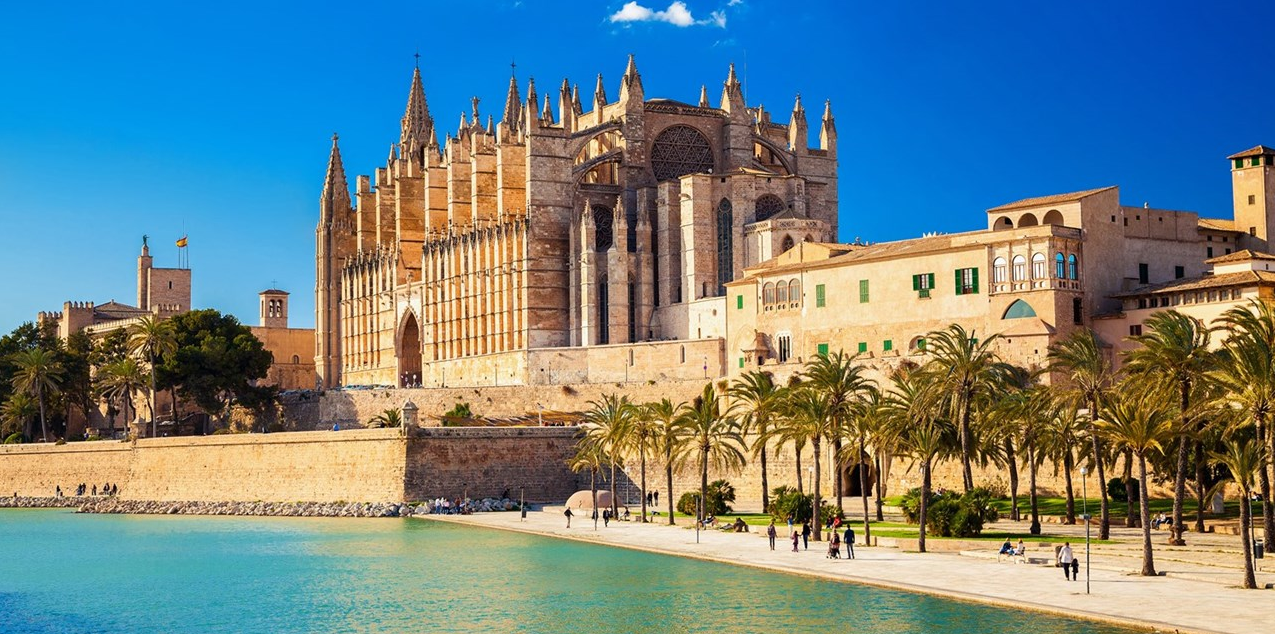



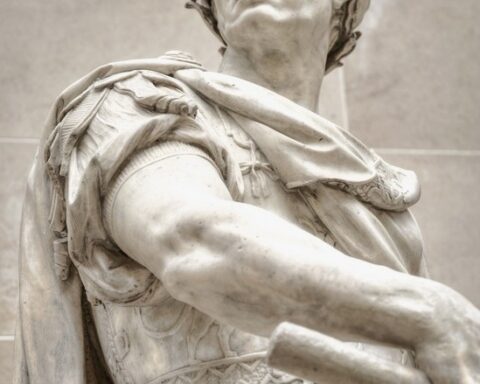

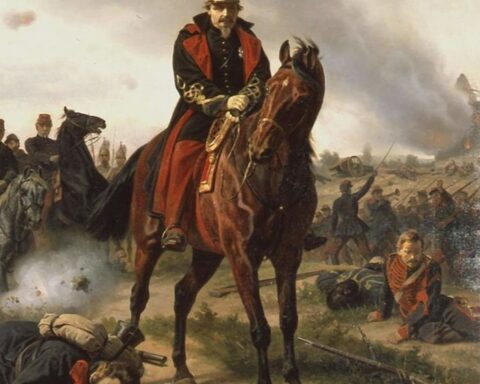
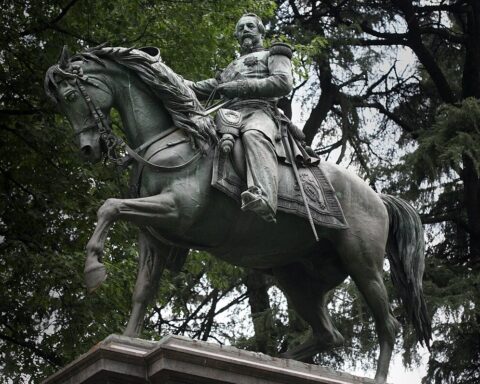
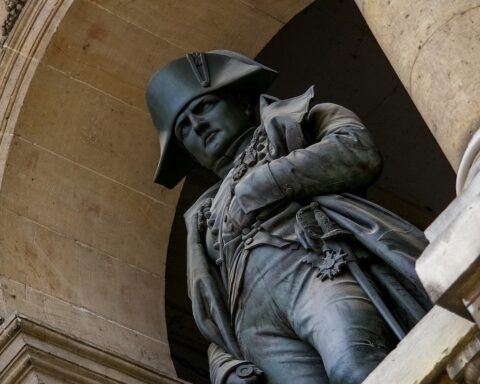
I prayed for him.